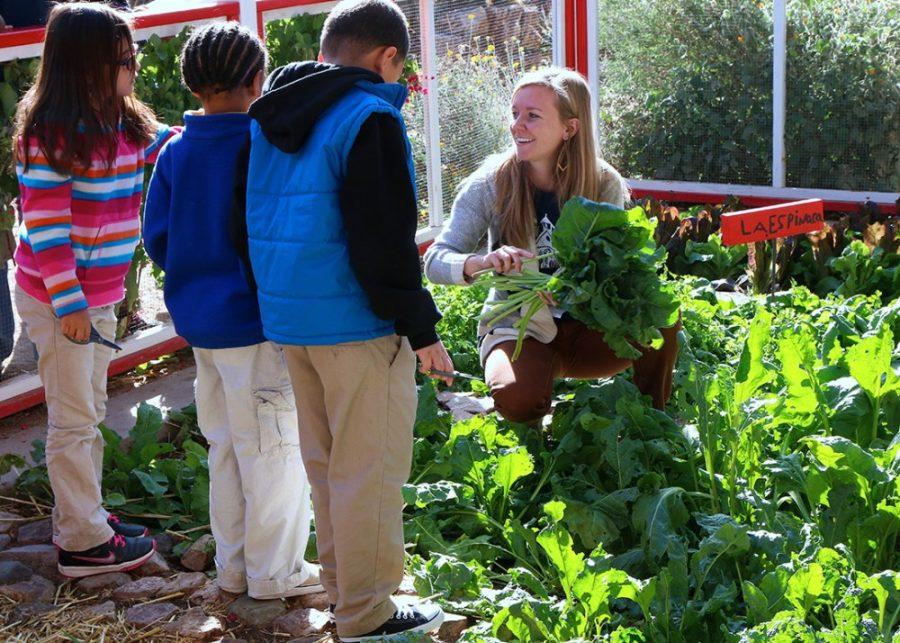The UA teaches hands-on lessons outside the traditional classroom setting to better prepare graduates for the competitive job market through its 100% Engagement Initiative.
The program provides students with the opportunity to exercise the skills and techniques learned at the university in real-life settings.
“What we’re looking for is to apply learning to real challenges and reflect on those real challenges,” said Vincent Del Casino, the vice provost for Digital Learning and Student Engagement. “This is not just showing up; this is actively engaging in big questions and problem solving and taking up the really interesting and important questions of the day.”
The 100% Engagement Initiative provides professional experiences that will be officially noted on students’ transcripts.
To acquire this notation, students will participate in either an upper division course with Engagement Activities embedded, or a non-credit experience, such as internships, study abroad or research experience.
“Engagement is a goal set out by the university to ensure that all staff and faculty are helping students be ready for whatever comes post-graduation,” said Rachael Ronald, the director of Student Engagement and Academic Advising for the College of Social and Behavioral Sciences. “But there’s also engaging, which is helping the students obtain experience in disciplines and in their fields to help them launch careers or prepare for grad school.”
The initiative seeks to provide undergraduate students with the opportunity to have hands-on experience during their college careers.
Experiences are comprised of Engagement Activities, such as leadership, community partnership and creative expression, and Engagement Competencies, which include innovation and creativity, professionalism and sustainability.
“The [Engagement] Activities that are for-credit are coming out of the academic colleges,” Del Casino said. “They are also coming out of non-credit experiences, which could come from a wide variety of places across campus, including the academic colleges.”
Among those locations is the Arizona Blue Chip Program. According to Jessica Hill, the associate director for Leadership Programs, UA Leadership Programs staff members serve on a leadership team for 100% Engagement. As part of a working group that seeks to understand how the UA will be impacted by this initiative, Hill wrote a non-credit engagement proposal for the Blue Chip Leadership Experience.
By providing students with skills and experiences, Blue Chip aims to create student leaders that positively impact their communities. This goal echoes some of the competencies and skills the Engagement Initiative seeks to enhance within students.
According to Hill, during the fourth year of the program students participate in an applied learning component called the Meridian Project. The project requires that students work with a community organization, such as Tucson Village Farms and Girl Scouts.
According to Hill, some of the proposed non-credit Engagement Activies will allow students to choose competencies they feel best fits their activity, while others will be predetermined.
A committee of UA faculty, staff and students will evaluate proposals for non-credit experiences to ensure activities lend plenty of opportunities in which students can apply learned concepts to real-world settings.
“When we create a system where we really verify and authenticate that, through these activities, students have really learned these competencies [and] are really understanding the skills that it takes to move on, people outside the university are going to start to recognize that and are going to think about that in relation to who they may hire or admit to graduate school,” Del Casino said.









